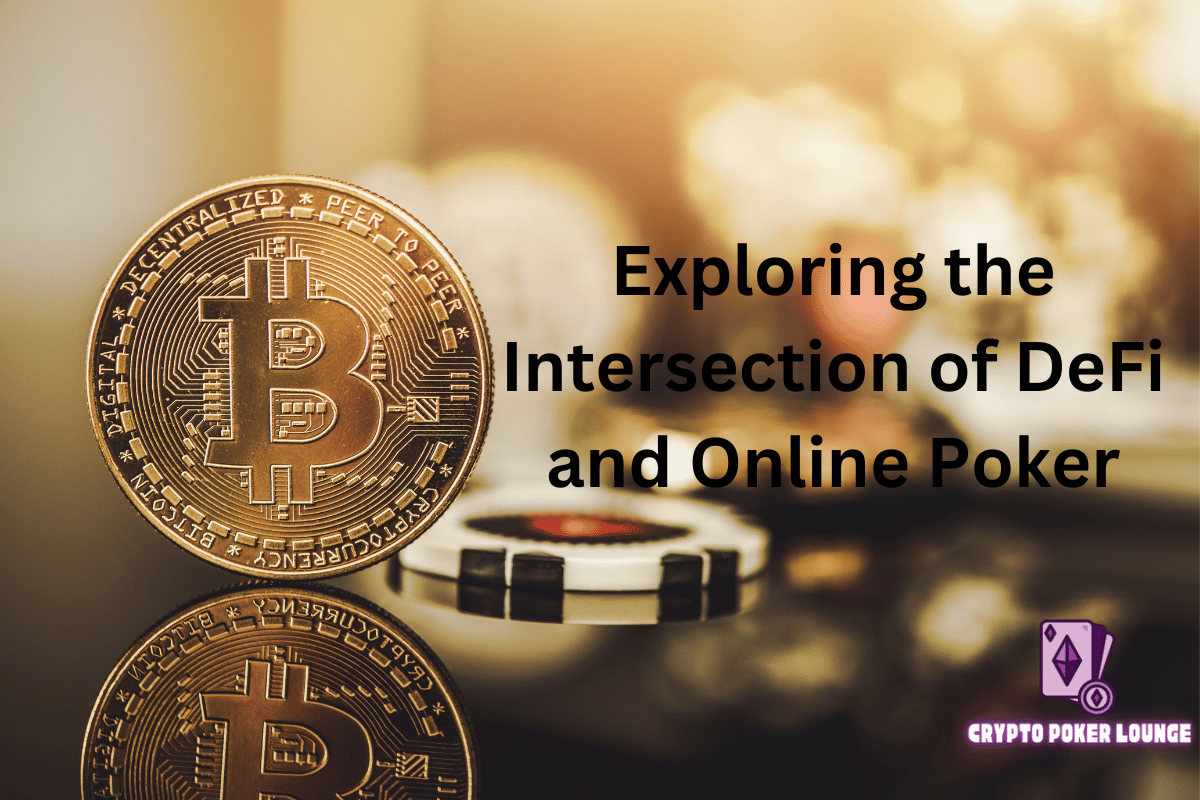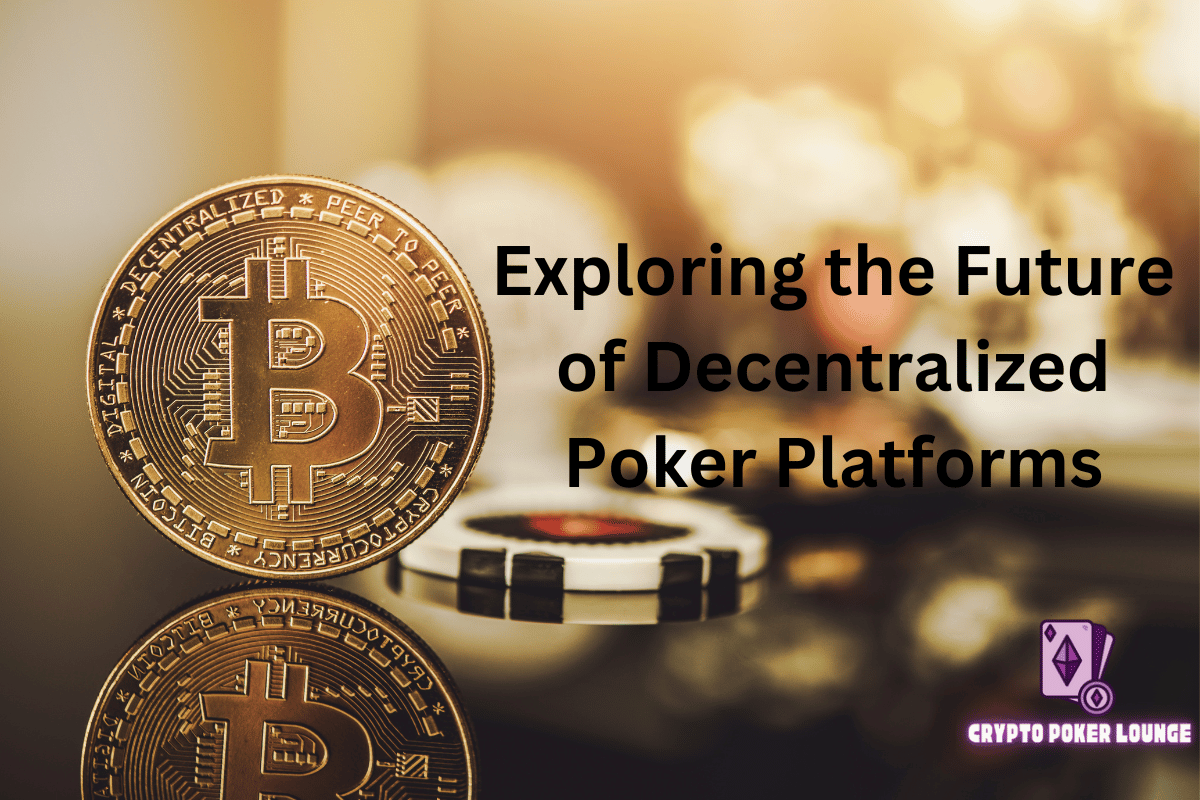
In a recent survey, it was found that over 40% of online poker players are actively involved in decentralized finance (DeFi) platforms.
As we explore the intersection of DeFi and online poker, we uncover intriguing possibilities for reshaping the landscape of digital gaming. The combination of DeFi’s transparency and security features with the dynamic environment of online poker presents a compelling arena for innovation and growth.
Join us on this journey as we dissect the potential impact of merging these two distinct yet interconnected worlds.
The Rise of DeFi in Poker
Analyzing the intersection of DeFi and online poker reveals a rapidly evolving landscape driven by innovative financial technologies and changing player preferences. The rise of DeFi incentives in poker has significantly impacted player engagement. By offering decentralized finance incentives such as yield farming, staking, and governance tokens, platforms are attracting a new wave of players seeking not only entertainment but also financial opportunities.
Moreover, the integration of DeFi protocols has brought about a transformation in poker liquidity. Players can now access a more liquid market, facilitating faster and smoother transactions within the ecosystem. This enhanced liquidity not only improves the overall user experience but also opens up new possibilities for leveraging assets and engaging in more complex financial strategies within the poker environment.
As DeFi continues to intertwine with online poker, the landscape is poised for further growth and evolution. Understanding the dynamics of DeFi incentives and their impact on player engagement is crucial for operators looking to stay competitive in this rapidly changing industry.
Benefits of DeFi Integration
When considering the benefits of integrating DeFi into online poker, it becomes evident that transparency is significantly enhanced. With blockchain technology at the core, transactions are verifiable and accessible, fostering trust among players.
Furthermore, decentralized payment options offer speed and efficiency, reducing the need for intermediaries and associated costs.
Additionally, the implementation of improved security measures through smart contracts bolsters the overall integrity of the gameplay experience.
Enhanced Transparency in Poker
How can DeFi integration enhance transparency in online poker, revolutionizing the way players interact in the virtual card rooms?
-
Immutable Records: Utilizing blockchain technology, every hand played can be permanently recorded, ensuring that the gameplay history is transparent and tamper-proof.
-
Real-Time Data: Players can access real-time data on the outcomes of each hand, promoting trust and accountability among participants.
-
Smart Contracts: By automating payouts through smart contracts, players can be assured that winnings will be distributed fairly and immediately upon the conclusion of a game.
-
Public Ledger: A public ledger of transactions can be maintained, allowing players to verify the flow of funds and ensure the integrity of the platform.
The integration of DeFi into online poker can significantly enhance transparency and player accountability, fostering a more trustworthy gaming environment.
Decentralized Payment Options
Building on the enhanced transparency DeFi integration brings to online poker, decentralized payment options offer a streamlined and secure way for players to manage their funds within virtual card rooms.
Instant settlements are a key benefit of decentralized finance in online poker, providing players with quick access to their winnings without delays. Additionally, cross border transfers are made more efficient through blockchain technology, enabling seamless transactions across different regions without the need for traditional banking systems.
Improved Security Measures
Integrating DeFi into online poker platforms enhances security measures by implementing decentralized protocols that safeguard player funds and transactions. This integration brings several key benefits:
-
Multi-factor authentication: By requiring multiple forms of verification, such as passwords and biometrics, the risk of unauthorized access is significantly reduced.
-
Encryption protocols: Utilizing advanced encryption techniques ensures that sensitive data is securely stored and transmitted, protecting it from cyber threats.
-
Fraud detection: Automated systems can flag suspicious activities in real-time, preventing fraudulent transactions before they occur.
-
Network monitoring: Continuous monitoring of the platform’s network allows for the early detection of any potential security breaches, enabling prompt action to mitigate risks.
Challenges of Security in DeFi
When it comes to DeFi, security risks are a paramount concern for all participants. Preventing breaches is a multifaceted task that requires constant vigilance and innovative solutions.
The importance of rigorous audits can’t be overstated in maintaining the integrity of DeFi platforms.
DeFi Security Risks
DeFi’s rapid growth has brought to light numerous security risks that challenge the safety and integrity of the decentralized finance ecosystem. When it comes to DeFi security risks, a thorough risk assessment and vulnerability analysis are crucial for identifying potential weak points. To enhance security in DeFi platforms, implementing robust security protocols is essential to prevent breaches.
Some of the key security risks in DeFi include:
- Smart contract vulnerabilities: Flaws in smart contracts can lead to significant financial losses.
- Centralized points of failure: Overreliance on centralized components can expose DeFi platforms to single points of failure.
- Oracle manipulation: Manipulating price oracles can result in inaccurate data being used for transactions.
- Flash loan attacks: These exploit DeFi protocols by borrowing and arbitraging large sums of assets within a single transaction.
Preventing DeFi Breaches
To fortify the security of DeFi platforms, a comprehensive approach to identifying and addressing potential vulnerabilities is paramount. Preventing fraud and ensuring effective risk management are central to safeguarding assets within decentralized finance systems.
DeFi breaches often occur due to smart contract bugs, vulnerabilities in protocol design, or inadequate security measures. Implementing robust authentication processes, encryption techniques, and continuous monitoring can mitigate these risks.
Additionally, conducting thorough security audits and penetration testing helps to proactively identify and rectify weaknesses before they’re exploited. Collaborating with cybersecurity experts and utilizing advanced monitoring tools can enhance the overall resilience of DeFi platforms.
Importance of Audits
Strengthening the security infrastructure through comprehensive audits is essential to address the challenges posed by security in DeFi, particularly in ensuring the integrity and resilience of decentralized financial systems.
When it comes to audits in the DeFi space, there are several key aspects to consider:
-
Audit Process: Thorough audits should be conducted regularly to identify vulnerabilities and ensure robust security measures.
-
Trustworthiness: Auditors must be reputable and independent to instill confidence in the audit results.
-
Compliance Standards: Adherence to industry standards and regulations is crucial for maintaining a secure DeFi ecosystem.
-
Verification Procedures: Transparent verification processes help validate the effectiveness of security measures and ensure the trustworthiness of the platform.
Opportunities for Player Transactions
Exploring the intersection of DeFi and online poker reveals a plethora of innovative opportunities for seamless player transactions. The integration of blockchain technology in online poker platforms enhances player interactions while leveraging the benefits of transparency and security. Through blockchain, transactions become more efficient, reducing the need for intermediaries and enabling faster peer-to-peer transfers. This increased transaction efficiency not only streamlines the deposit and withdrawal processes but also minimizes the associated costs, ultimately empowering players with more control over their funds.
Furthermore, blockchain technology facilitates trustless transactions, eliminating the reliance on centralized entities for validation. This decentralization fosters a more secure environment for players to engage in various financial activities within the online poker ecosystem. By leveraging smart contracts, players can automate certain aspects of their transactions, such as payouts and rewards distribution, ensuring a fair and transparent gaming experience. Overall, the integration of DeFi principles in online poker not only enhances transaction processes but also promotes player empowerment and trust in the platform.
Smart Contracts in Online Poker
By implementing smart contracts, online poker platforms revolutionize the way player transactions are executed, ensuring automated and secure processes. Blockchain integration plays a crucial role in enhancing transparency and trust among players, while smart contract management streamlines the execution of agreements.
Here are four key ways smart contracts are transforming online poker:
-
Instant Settlements: Smart contracts enable instant settlement of winnings, eliminating the waiting time associated with traditional payment methods.
-
Decentralized Gameplay: Through blockchain integration, smart contracts provide a decentralized environment for gameplay, reducing the reliance on centralized servers and enhancing security.
-
Automated Rewards: Smart contracts can automatically distribute rewards and bonuses based on predefined conditions, ensuring transparency and accuracy in reward distribution.
-
Immutable Record-Keeping: Blockchain technology ensures that all transactions within the online poker platform are securely recorded, creating an immutable record of gameplay and financial transactions.
Incorporating smart contracts in online poker not only enhances efficiency but also fosters a more trustworthy and secure gaming experience for players.
Navigating Regulatory Issues
How do regulatory frameworks impact the operational landscape of online poker platforms in the ever-evolving ecosystem of decentralized finance (DeFi)?
Regulatory compliance is a critical aspect that online poker platforms operating within the realm of DeFi must navigate. Legal considerations play a significant role in shaping the way these platforms operate and interact with users in a decentralized environment. Ensuring compliance with existing regulations while leveraging the benefits of DeFi technology poses a unique challenge for these platforms.
Online poker platforms must carefully assess and address regulatory issues to maintain trust among their users and uphold the integrity of their operations. Implementing robust compliance measures can help mitigate risks associated with potential legal challenges and regulatory scrutiny. By proactively addressing regulatory concerns, platforms can establish themselves as trustworthy entities within the DeFi space, fostering a positive environment for players and investors alike.
DeFi’s Impact on Player Privacy
The integration of decentralized finance (DeFi) into online poker platforms raises critical considerations regarding the impact on player privacy within this evolving ecosystem. When analyzing the privacy implications of DeFi in online poker, it’s crucial to delve into aspects such as data protection, user anonymity, and transactional security.
Here are four key points to consider:
-
Enhanced Privacy Measures: DeFi protocols can offer improved data protection mechanisms, ensuring that players’ personal information and gaming data are safeguarded more effectively compared to traditional centralized platforms.
-
User Anonymity: DeFi’s decentralized nature allows players to participate in online poker with a higher degree of anonymity, reducing the risk of personal information exposure and enhancing overall privacy.
-
Improved Transactional Security: Utilizing blockchain technology, DeFi enhances transactional security in online poker by providing transparent and tamper-resistant records, reducing the likelihood of fraudulent activities that could compromise player privacy.
-
Balancing Transparency and Privacy: While DeFi promotes transparency through its open-source protocols, ensuring a delicate balance between transparency and user privacy is essential for maintaining trust within the online poker community.
Decentralized Payment Solutions
Decentralized payment solutions offer secure transaction processes that enhance the integrity of online poker gameplay. With lower transaction costs, players can enjoy more of their winnings without hefty fees eating into their profits.
Furthermore, these solutions provide improved financial privacy, safeguarding sensitive information in an era where data security is paramount.
Secure Payment Transactions
When considering secure payment transactions in the realm of DeFi and online poker, we must prioritize the adoption of innovative decentralized payment solutions for enhanced security and efficiency. Implementing secure payment options and robust transaction encryption protocols is crucial to safeguarding financial transactions in these ecosystems.
Here are key factors to enhance secure payment transactions:
-
Smart Contract Wallets: Utilizing smart contracts for payment processing ensures transparency and automates transactions securely.
-
Multi-Signature Authentication: Requiring multiple approvals for transactions enhances security and reduces the risk of unauthorized payments.
-
End-to-End Encryption: Implementing encryption protocols from end to end protects sensitive payment data from potential breaches.
-
Decentralized Finance Platforms: Leveraging DeFi platforms for payment processing can offer increased security through decentralized networks.
Lower Transaction Costs
Exploring cost-effective decentralized payment solutions reveals significant opportunities for optimizing transaction expenses and enhancing financial efficiency in the DeFi and online poker sectors. Reduced fees play a pivotal role in driving adoption of decentralized payment solutions, making transactions more affordable for users.
In the fast-paced environment of online poker, where numerous transactions occur regularly, these reduced fees can lead to substantial cost savings over time. Efficient transactions facilitated by decentralized payment solutions not only lower costs but also streamline the overall payment process, improving the user experience for both DeFi and online poker participants.
Embracing these technologies can revolutionize the financial landscape by providing a more economical and seamless way to transact within these sectors.
Improved Financial Privacy
Moving from the realm of lower transaction costs in DeFi and online poker, a notable shift emerges towards enhanced financial privacy through decentralized payment solutions. Decentralized finance (DeFi) platforms and online poker sites are increasingly integrating privacy-focused payment solutions to provide users with greater financial autonomy and privacy protection. Here are four key aspects driving this trend:
-
Enhanced Anonymity: Decentralized payment solutions enable users to transact without revealing personal information, enhancing privacy protection.
-
Immutable Transactions: The transparent and immutable nature of blockchain technology ensures secure and private transactions.
-
Reduced Third-Party Involvement: By eliminating intermediaries, decentralized payment solutions offer users increased financial autonomy.
-
Global Accessibility: These solutions provide users worldwide with equal access to financial services while maintaining their privacy.
Risk Management Strategies
To effectively navigate the volatile landscape of DeFi and online poker, one must implement robust risk management strategies that prioritize capital preservation and strategic decision-making. Risk mitigation is crucial in both realms, with bankroll management playing a vital role in ensuring longevity in the face of uncertainties. By strategically allocating funds, individuals can better withstand market fluctuations and poker variance, ultimately safeguarding their assets.
Strategic decision-making is equally imperative, requiring a deep understanding of risk-reward dynamics and an ability to adapt to changing circumstances swiftly. In DeFi, where decentralized protocols can be complex and unpredictable, a proactive approach to risk management is essential to prevent substantial financial losses. Similarly, in online poker, mastering variance control through disciplined play and thoughtful bankroll management can mitigate the impact of inevitable swings in luck.
Future of DeFi-Poker Partnerships
Considering the evolving landscape of decentralized finance (DeFi) and online poker, the integration of DeFi-Poker partnerships holds significant potential for reshaping the future of both industries. Through DeFi tokenization, player rewards can be revolutionized, enhancing player engagement and loyalty. Here are some key insights into the future of DeFi-Poker partnerships:
-
Enhanced Player Rewards: DeFi-Poker partnerships can leverage tokenization to create innovative reward systems that incentivize player participation and retention.
-
Optimized Game Theory: By incorporating DeFi principles into online poker platforms, game theory can be enhanced, leading to more strategic gameplay and a deeper level of engagement.
-
Synergistic DeFi Partnerships: Collaborations between DeFi projects and online poker platforms can introduce new financial instruments and services, expanding the value proposition for players and investors alike.
-
Data-Driven Decision Making: The intersection of DeFi and online poker allows for the collection and analysis of vast amounts of data, enabling informed decision-making processes that drive growth and innovation within both industries.
Innovations in Player Rewards
The evolving landscape of decentralized finance (DeFi) and online poker presents a fertile ground for pioneering innovations in player rewards that can revolutionize engagement and loyalty dynamics. By integrating blockchain technology into loyalty programs, online poker platforms can enhance transparency and security while offering players a more immersive experience. Tokenized rewards have emerged as a game-changer, allowing players to earn digital assets that hold tangible value beyond the platform.
Blockchain integration ensures that rewards are securely stored and easily traceable, fostering trust between players and platforms. This transparency can lead to increased player engagement as users feel more confident in the fairness of the reward system. Furthermore, tokenized rewards provide players with a sense of ownership and investment in their rewards, further incentivizing continued participation and loyalty.
Innovations in player rewards not only benefit the players but also the platforms themselves by fostering a loyal player base and driving long-term sustainability. As the intersection of DeFi and online poker continues to evolve, player rewards will play a crucial role in shaping the future of the industry.
Evaluating DeFi Platforms
Our assessment of DeFi platforms reveals a nuanced landscape of features and functionalities that are pivotal in gauging their effectiveness and suitability for online poker integration. When evaluating DeFi platforms for online poker applications, we focus on two critical aspects: evaluating user experience and assessing risk management.
Here are four key factors we consider in our analysis:
-
User Interface (UI) and Experience: We examine the platform’s interface for user-friendliness, ease of navigation, and accessibility to ensure a smooth experience for poker players.
-
Transaction Speed and Cost: Speed and cost of transactions are crucial for seamless gameplay. Platforms with low transaction fees and fast processing times are preferred for efficient gaming sessions.
-
Security Measures: Robust security protocols, such as multi-factor authentication and encryption, are essential for safeguarding user funds and data against cyber threats.
-
Smart Contract Audits: Conducting thorough audits of smart contracts is vital to mitigate risks of vulnerabilities and ensure the platform’s reliability and trustworthiness for online poker transactions.
Frequently Asked Questions
How Can Defi Technology Be Integrated Into Online Poker Platforms to Enhance Player Experience?
We can integrate DeFi technology into online poker by enhancing player engagement through tokenization. By leveraging decentralized governance and liquidity pools, we can create a more transparent and efficient platform that offers unique incentives and rewards.
What Are the Potential Risks Associated With Using Decentralized Payment Solutions in Online Poker?
Using decentralized payment solutions in online poker may raise security concerns and privacy risks. However, these risks can be mitigated through robust encryption protocols and smart contract technology, enhancing user experience and convenience.
How Do Smart Contracts in Online Poker Ensure Transparency and Fairness in Gameplay?
Smart contracts in online poker ensure transparency assurance by automating gameplay rules and outcomes. These benefits promote fair gameplay and enhance player trust through verifiable, immutable records of every transaction and move made during the game.
What Are Some Innovative Ways That Defi Can Be Utilized to Improve Player Rewards in Online Poker?
We can enhance player rewards in online poker through innovative tokenomics and strategic reward distribution. Leveraging DeFi can optimize incentive structures, fostering player engagement and loyalty within the ecosystem. This approach revolutionizes player benefits.
How Do Regulatory Issues Impact the Growth and Adoption of Defi in the Online Poker Industry?
Regulatory challenges in DeFi affect online poker’s growth. Compliance hurdles and market dynamics hinder adoption. Navigating these barriers is crucial for innovation. Overcoming these obstacles will pave the way for a more robust industry.
Conclusion
In conclusion, the intersection of DeFi and online poker presents a world of opportunities for players and platforms alike. With the rise of decentralized finance, we’re witnessing a shift towards more secure, transparent, and efficient transactions in the poker industry.
As we look towards the future, one question remains: Will traditional poker platforms adapt to the advancements of DeFi, or risk falling behind in this rapidly evolving landscape?


